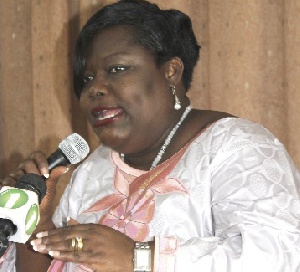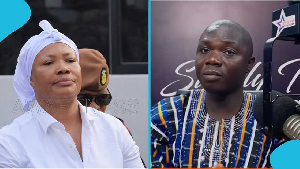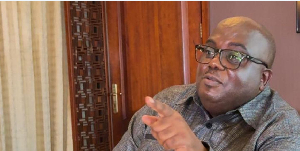Nana Oye Lithur, Minister of Gender, Children and Social Protection, has justified the need for an affirmative action law to bridge the widening gender gap and improve women representation in decision-making.
The existence of gender inequality, she said, triggers discrimination, social injustice and limited economic progress of women.
“The continuous existence of gender inequality in political and public decision-making makes it critical for us to assess and review our strategy to achieve an increased participation and representation of women at all levels of decision-making,” Nana Lithur said at the second series of gender dialogue on Wednesday.
The dialogue, supported by Actionaid and United Nations Development Programme, was on the theme: “Promoting gender equality and non-discrimination in Ghana through affirmative action”.
“Affirmative Action is not only the right thing to do, but the best thing for our dear country Ghana,” she said.
Successive governments have had deliberate policies to encourage women and girls to fully realise their highest potential and upturn their participation in decisions-making.
But Nana Lithur said any process to increase female participation in governance and create an inclusive governance structure would fail if it was not planned.
She also said an equal representation of women and men in decision-making would reflect the true needs of the society.
“It also reflects the society’s commitment to international and national commitments to women and gender equality,” she said.
“The fewer the number of women in society, who participate in formal decision making, the less likely it is that the decisions made are working in favour of women.”
Nana Lithur observed that an affirmative action law was Ghana’s only way of attaining gender equality, with respect to women participating in decision making.
Statistics available indicate that women representation was zero per cent at Independence, it increased to 7.2 per cent after Dr Kwame Nkrumah’s affirmative action law.
The number fell to two per cent in the second republic, 3.6 per cent in the third republic, eight per cent in the first parliament of the fourth republic and it now stands at 10.5 per cent.
“That is why I say the status quo will remain and the numbers will not change unless we adopt affirmative action,” Nana Lithur said.
She noted that, under representation of women in Parliament had affected women’s participation in proceedings, particularly, at the committee level, and that, it was only an Affirmative Action Law that would facilitate equitable representation of women.
She said the bill is expected to be submitted to cabinet for approval before December this year.
General News of Friday, 14 August 2015
Source: GNA
Oye Lithur makes case for affirmative action law
Opinions












